'Not a square meter': Lebanon rejects Israeli offer on border demarcation
Lebanon has rejected an Israeli proposal on the demarcation of the country's southern maritime border with the occupying regime, reaffirming its right to maritime oil and gas fields.
A Lebanese diplomatic source was quoted as saying by Sputnik news agency on Monday that Beirut rejected an Israeli offer that stipulates that it concede a part of Block 8 that lies to the north of Line 23, in return for "Israel's relinquishment of the Qana gas field."
As part of the offer, Beirut was required to give up the southwestern part of Block 8 in particular, according to the report.
The Israeli offer “was rejected by Beirut", the report noted, adding that Lebanon "clung to the Qana field and rejected to give up any square meter in Block 8."
The proposal was reportedly pitched by Amos Hochstein, the US official mediating between the two sides who arrived in Beirut on Sunday.
Hochstein met President Michel Aoun, Prime Minister Najib Mikati, and parliament speaker Nabih Berri at the presidential palace on Monday.
He also held a separate meeting with caretaker Foreign Minister Abdallah Bou Habib.
Following his meeting with Hochstein, Bou Habib stressed that his country was demanding the right to develop "all of Qana", without concessions.
The US envoy, however, expressed optimism that Lebanon and Israel could reach a maritime border deal.
"I remain optimistic that we can make continuous progress as we have over the last several weeks and I look forward to coming back to the region and being able to make the final arrangements," Hochstein told reporters after meeting the top Lebanese leaders on Monday.
Read more:
Hezbollah does not rule out ‘war’ with Israel over disputed gas field
The maritime row between Lebanon and Israel is over an area in the Mediterranean Sea spanning about 860 square kilometers.
Block No. 9 is rich in oil and gas. Israel relies heavily on gas and has long been developing occupied offshore gas deposits in the Mediterranean Sea.
The two sides have held several rounds of talks to delineate their maritime borders and resolve the decades-long dispute but to no avail.
The maritime dispute escalated in early July after the Israeli regime moved vessels into the Karish Gas Field, which lies in Lebanon’s territorial waters.
The Lebanese resistance movement of Hezbollah does not rule out going to war with Israel over the regime’s attempts at impinging on Lebanon’s natural resources.
The movement’s Secretary-General Sayyed Hassan Nasrallah said on Sunday that the resistance’s attitude and behavior towards the Israeli regime in the case depend on the results of ongoing indirect negotiations between Beirut and Tel Aviv over the disputed maritime area.
Israel launched two wars against Lebanon in the 2000s. In both cases, it was forced to retreat after suffering a humiliating defeat at the hands of Hezbollah.
Israel hits HTS military target in Syria for 1st time since fall of Assad
VIDEO | Press TV's news headlines
Israel has slaughtered 13000 students in Gaza, West Bank
VIDEO | More Zionist than Zionists: Biden’s legacy to be defined by Gaza genocide
Hamas confirms handing approval of Gaza ceasefire deal to mediators
VIDEO | Iran: Show of strength
UNRWA will ‘stay, deliver’ aid to Palestinians despite Israel’s ban: Lazzarini
Explainer: What makes Iran's Rezvan and Raad loitering munitions prized assets?


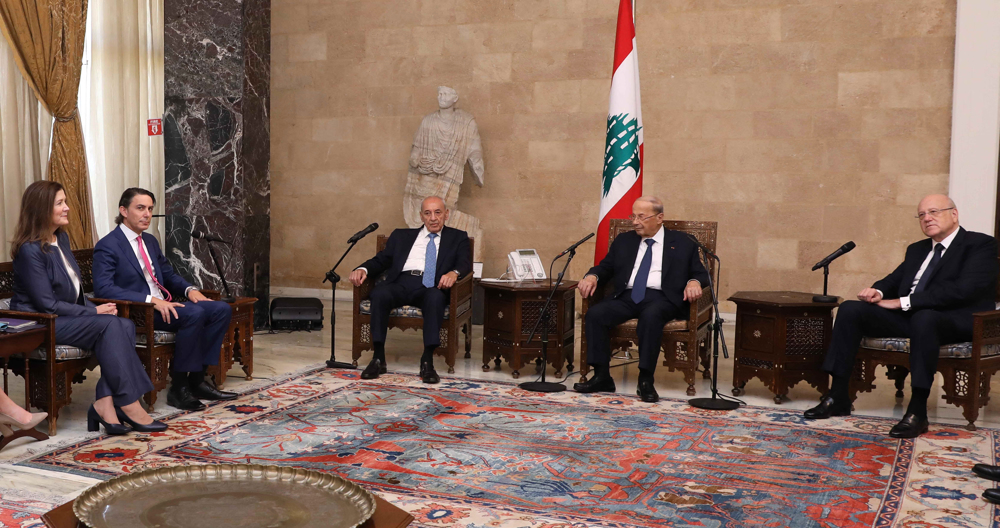
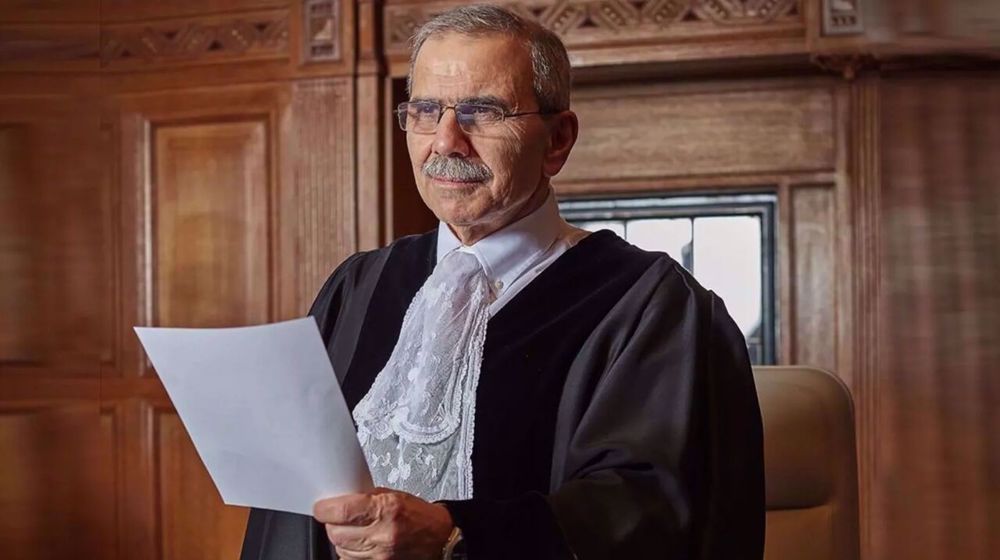
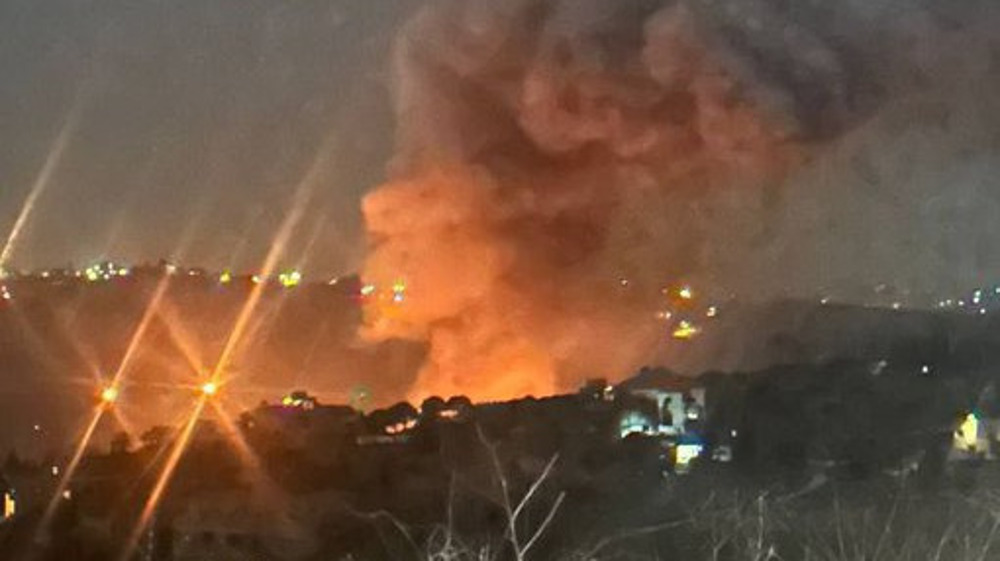
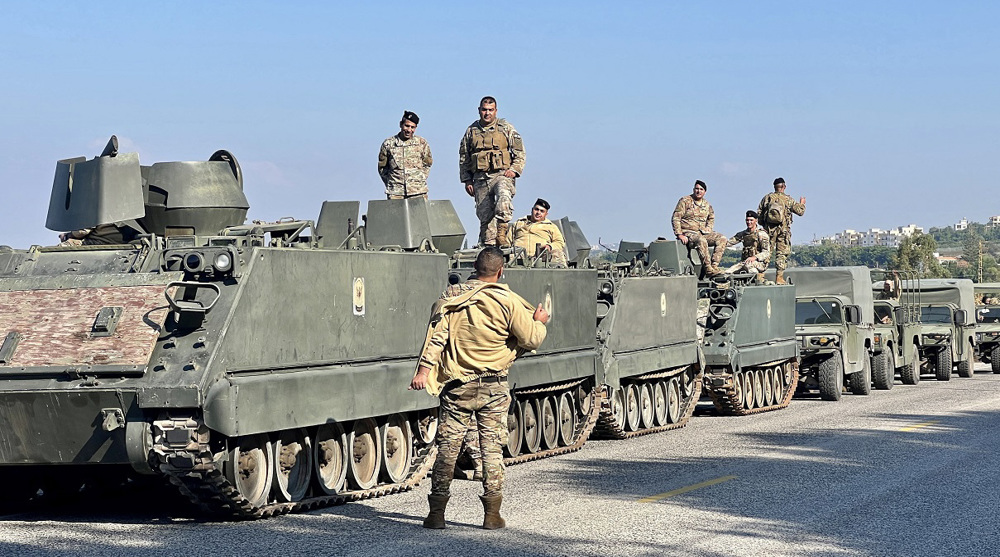



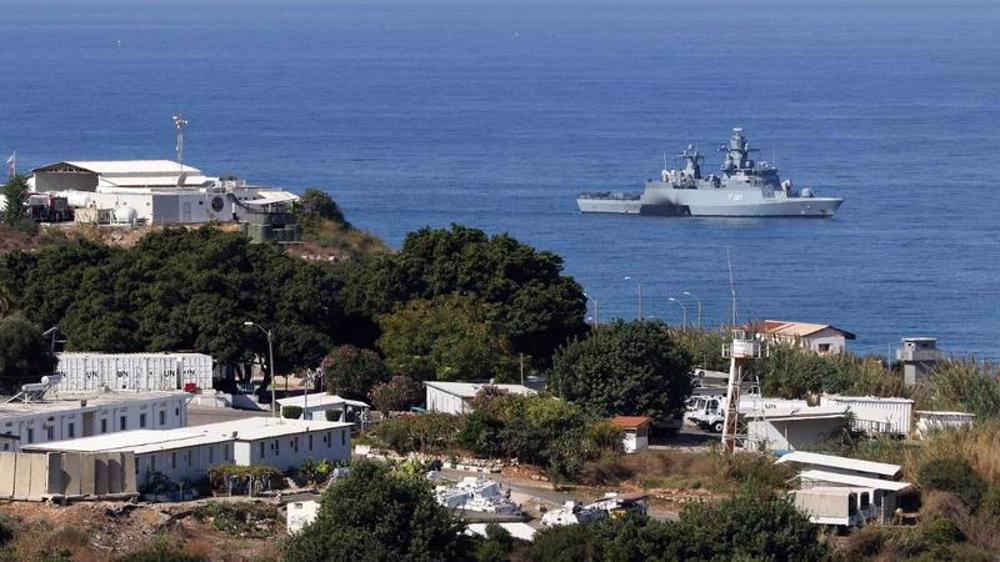
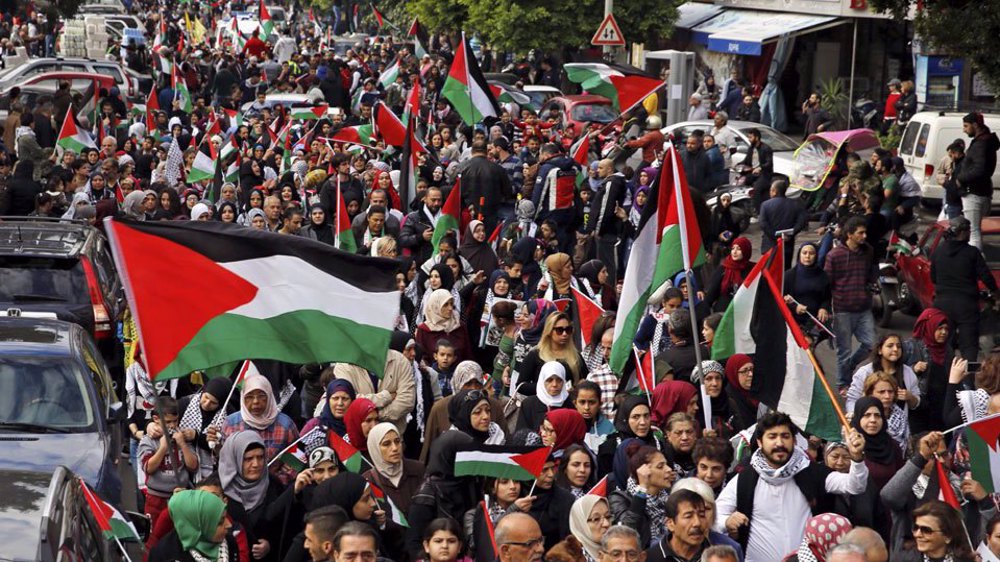
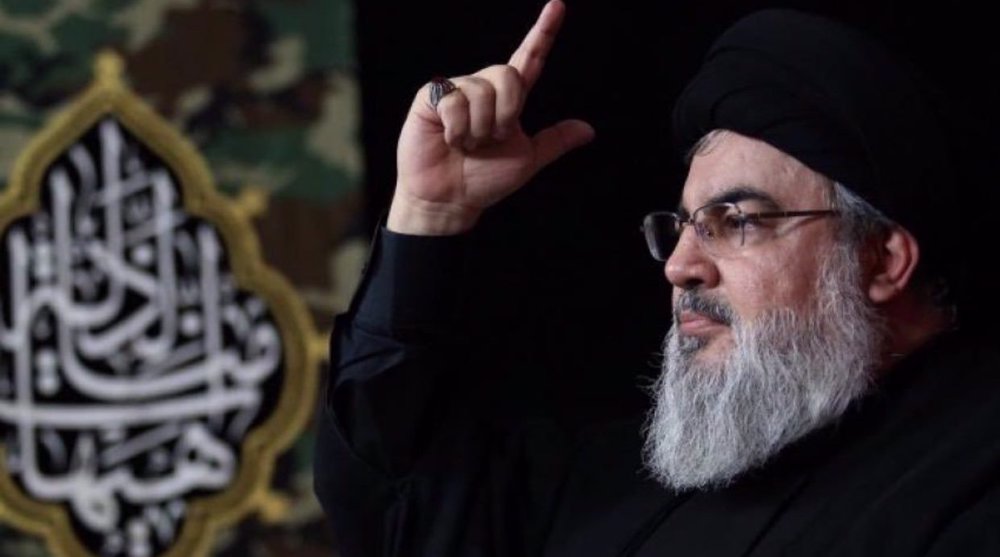

 This makes it easy to access the Press TV website
This makes it easy to access the Press TV website